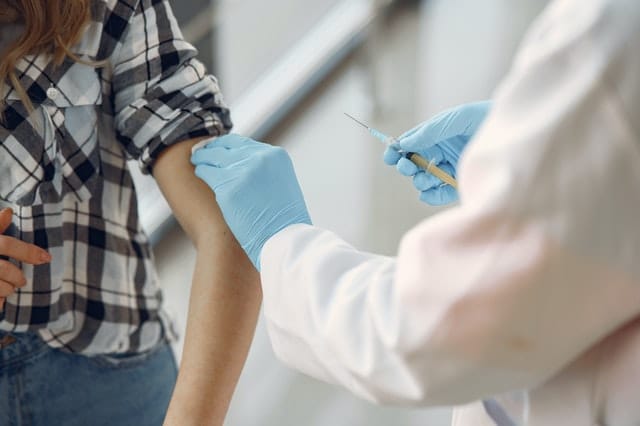The Food and Drug Administration (FDA) recently authorized the Pfizer-BioNTech and Moderna COVID-19 vaccines for emergency use. Following this decision, the Centers for Disease Control and Prevention (CDC) released guidelines on who should and should not receive the COVID-19 vaccine. Because many of our allergy and asthma patients have asked whether the vaccine is safe for them, we’ve summarized the CDC guidance below.
Who Is the Vaccine Available for?

In most states, the vaccine is being distributed in phases. In Georgia, there are currently three phases laid out:
- Phase 1a+: Health care workers, long-term care facilities staff and residents, adults 65+ and their caregivers, and emergency responders
- Phase 1b: Non-health care essential workers in sectors critical to infrastructure, public health, safety, economy and national security
- Phase 1c: People ages 16-64 with medical conditions that put them at risk of severe complications from COVID-19
We are currently in phase 1a+.
Who Is at Risk of Complications from the Vaccine?
According to the Asthma and Allergy Foundation of America, you are safe to get the vaccine if you are:
- Over 16 (Pfizer-BioNTech) or over 18 (Moderna)
- Are pregnant/nursing
- Have other medical conditions
- Have a compromised/suppressed immune system
- Have allergies to foods, pet dander, insects, venom, pollen, dust, latex and oral medicines
- Have a non-serious allergy to other vaccines
- Have a family history of anaphylaxis to anything other than a vaccine/injectable medicine
You should talk to your doctor first about the vaccine if you:
- Have a moderate or acute illness
- Are currently ill with COVID-19
- Have a history of anaphylaxis to a vaccine/injectable medicine
- Have a history of an allergic reaction to PEG or polysorbate
You should not get the vaccine if you:
- Have had a severe or immediate allergic reaction to a previous dose of the COVID-19 vaccine
- Have a known allergy to any of the COVID-19 vaccine ingredients
According to Dr. June Raine, the U.K. Medicines and Healthcare Products Regulatory Agency (MHRA) Chief Executive, “Anaphylaxis is a known, although very rare, side effect with any vaccine. Most people will not get anaphylaxis and the benefits in protecting people against COVID-19 outweigh the risks.”
While getting the vaccine doesn’t mean you can safety gather in large groups or abandon social distancing guidelines right away, it does mean you’re one step closer to watching a game or attending an event at Sanford Stadium once again.
For more information or to schedule an appointment, call ENT of Athens today.